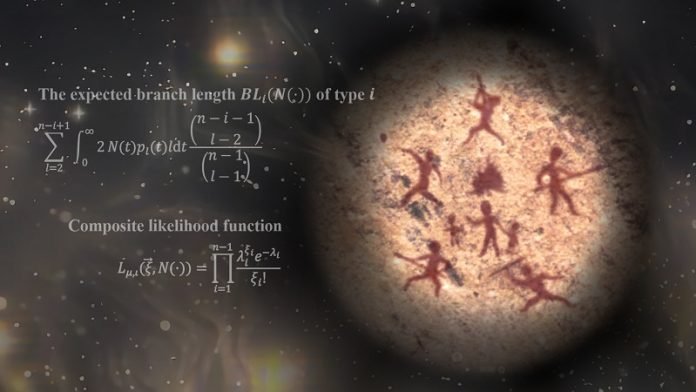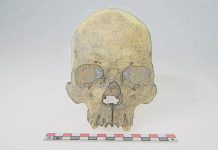
Scientists have made a groundbreaking discovery that helps us understand a mysterious period in our past.
They found out that there was a time when only around 1,280 humans were able to have children and keep the human race alive.
This happened about 930,000 to 813,000 years ago and lasted for an impressive 117,000 years.
Imagine your entire city or town being the only group of people left on Earth—that’s how few humans there were. Researchers from China, Italy, and the United States used a new scientific method called FitCoal to analyze the DNA of over 3,000 modern people.
What they found was shocking: our early ancestors went through a really tough time, where most of them died off, making it hard for humans to survive as a species.
You may wonder why there’s a gap or missing information in the human fossil records in Africa and Europe during that time.
The scientists think this “bottleneck” of very few humans explains it. During this period, there was a significant loss of life, and so, the evidence or fossils were lost too.
Why did this happen?
The main reasons seem to be changes in climate, like ice ages and severe droughts. These tough conditions also wiped out animals that early humans might have hunted for food.
This meant that about two-thirds of the genetic diversity we might have had was lost. In simple words, our ancestors were very similar to each other because there were so few of them.
However, there’s a surprising twist. This bottleneck might have helped humans evolve. During this time, two ancient chromosomes combined to form what we now call chromosome 2 in modern humans.
This finding could be the missing link that shows how we are related to other ancient human-like species, like the Neanderthals and Denisovans.
So, what now? Well, researchers have more questions than answers. They want to know where these 1,280 people lived, how they survived such terrible climate changes, and whether these conditions sped up the development of the human brain.
Control of fire and improvements in climate around 813,000 years ago might have helped the human population to finally grow and thrive.
Scientists from different countries and backgrounds came together for this exciting research, and it looks like they are only scratching the surface.
This study opens up new ways to explore the mysteries of early human history and evolution.
In the future, they hope to uncover more details about this remarkable period, which can tell us more about who we are and where we come from.
Follow us on Twitter for more articles about this topic.
Source: Chinese Academy of Sciences.



